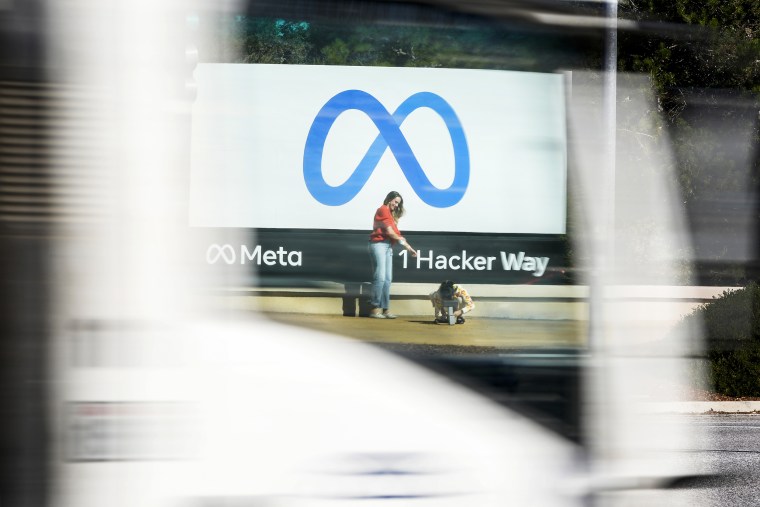Over the next few weeks, Meta will begin to block people in Canada from viewing or posting news links and audiovisual news content on Instagram and Facebook. This comes after the country passed Bill C-18 in June, now the Online News Act, a law that requires Big Tech to pay local news outlets fees for showing their content.
People can still access and share news outside Instagram and Facebook, but Meta’s decision is causing concern among experts and news organizations who say removing reliable news sources will subject users to misinformation and hurt local news outlets that rely on the two platforms for visibility.
News could be wiped out from Google soon, too. In June, the company said it would remove Canadian news links when the law takes effect rather than pay content fees.
Michael Geist, a law professor and chair of internet and e-commerce law at the University of Ottawa, told NBC News that the response to the legislation has created “a news desert in Canada on popular social media platforms.”
He said the impact will be acutely felt by Canadian media companies, especially smaller independent outlets that rely on significant traffic and revenues from social media.
“If the news and news-style content that remains on the platform comes from less credible sources or has a higher risk of misinformation, that, I think, is a problem from a democratic perspective” Geist added.
CBC/Radio-Canada, a national public broadcaster, said in a statement Tuesday that Meta’s decision “means that people in Canada who have come to rely on these platforms to find and access news and information about their country are now left with only unverified sources in their feeds.”
Facebook, a popular social network for news in Canada and heavily relied on for news by Canada’s minority and rural communities, is one of many social media platforms that deal with misinformation and fake news.
In the wake of ending news availability in Canada, Meta said it would “continue to combat misinformation” on its platforms by fact-checking remaining content through third-party organizations.
Once someone loses access to news on Facebook and Instagram, they will instead see the message: “People in Canada can’t see this content.”
Anna McKenzie, a reporter at IndigiNews, a Vancouver-based Indigenous news site, was one of the early users who stopped seeing Canadian news in July, she told NBC News. She said Facebook has helped her women-led newsroom connect with Indigenous communities.
“It just feels very scary to have our federal government and these giant tech companies making these really, really big decisions without considering the silencing of marginalized voices,” she said. “If you don’t see a reflection of yourself in the press and the news, that can really affect your identity.”
IndigiNews is at risk of losing almost half of its traffic, which comes through Facebook, McKenzie said. IndigiNews also lost its funding from the Google News Initiative after Bill C-18 passed in June.
Tara Jeffrey, an editor of The Sarnia Journal in Ontario, said the digital-only news site started receiving Facebook notifications Tuesday that their content was no longer available in Canada. Facebook is the top referral source to its website, she said.
“We’re already sort of in a struggling industry trying to survive. So this has just been another blow really to small independent news outlets like ourselves,” she said. “If folks can’t see legitimate news organizations, then of course they’re going to be finding their news elsewhere. And that’s a concern because there’s already a huge problem with the spread of misinformation.”
Others in Canada also received Facebook notifications informing them that they soon won’t be able to view or share news on the site.
Jeffrey and McKenzie said their news outlets' accounts are still available to many of their followers and that website traffic has declined since Tuesday, when Meta made the most recent announcement.
It is unclear the precise percentage of users who have been impacted so far and it seems to be a gradual process, according to the people in Canada who spoke to NBC News. Meta did not respond to requests for comment.
In June, Meta said it was conducting product tests to end news availability in Canada before the law goes into effect. “These tests are ongoing and currently impact a small percentage of users in Canada,” it said.
In July, the Globe and Mail wrote in an Instagram post that “Facebook and Instagram are blocking Canadian news outlets for up to 5% of users in the country.”
Since June, several Canadian news outlets started asking their followers on Instagram and Facebook to view their content on other platforms or directly support them by bookmarking their websites and signing up to newsletters.
Some people on Instagram and Facebook said they would use alternative methods to access news in Canada. Several users said a virtual private network was a solution, a tool that allows users to pretend they are in another territory. Others said they would subscribe to online or print versions of newspapers to receive news.
The Online News Act intends to help news businesses receive fair compensation for their content, according to the legislation. It follows a similar law that passed in Australia in 2021.
